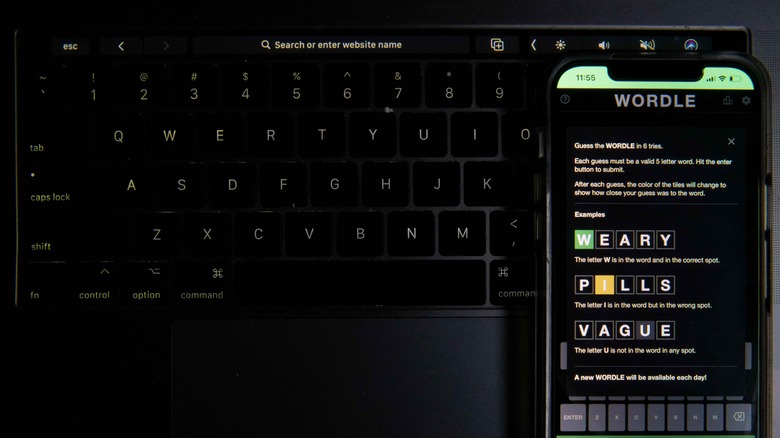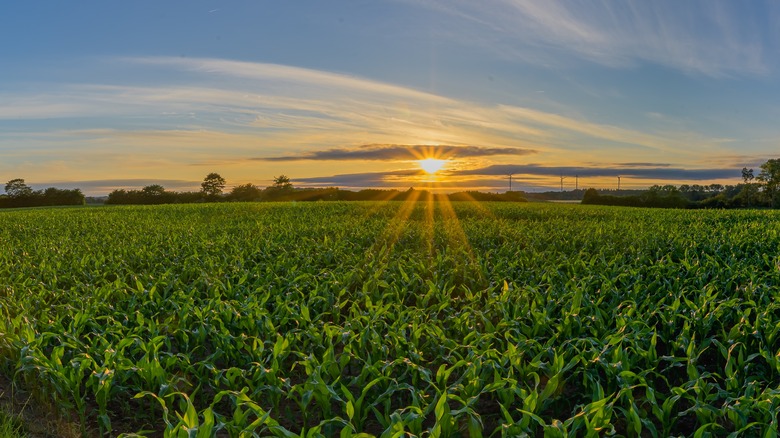Today's Wordle Answer #585 - January 25, 2023 Solution And Hints
Today's Wordle answer contains one of the least occurring letters in the answer pool — and the English language in general. That being said, it's something most people are definitely familiar with, and we'll supply a few clues that should help you unveil the mystery word.
The word you're looking for is a grainy plant that's the most abundantly produced cereal in the world. It has ears, and is also the raw material from which the most popular movie-accompanying snack is made. It's also the source of a syrup used in desserts and beverages. It has an alternative four-letter name, and a little boy recently went viral on TikTok for declaring his undying love for this.
Containing three vowels, the word of the day is quite vowel-heavy, but there are no repeated letters. It rhymes with a noun that describes a network of paths and hedges designed to be a puzzle, and if you added the letter "A" as a prefix, you'd have the homonym of a word that means to greatly surprise someone.
Its first name is Zea
If you're still unsure, the solution to today's Wordle puzzle (#584 – January 25, 2023) is "maize." It's the largest crop in the U.S. in terms of total production, and is mostly grown in a region known as the Corn Belt — which comprises Indiana, Illinois, Iowa, Missouri, eastern Nebraska, and eastern Kansas.
Since the 1850s, the Corn Belt has dominated corn production in the United States, producing more than one-third of the world's corn supply. According to the USDA, the U.S. maize crop had a staggering value of $71 billion in 2021.
The word "maize" is from Cuban Spanish "maiz," and from Arawakan (a Haitian language) "mahiz," both native names of the plant (via Etymonline). This is because the first farmers to cultivate corn were the native people of the North American continent, in an area that is now present-day Mexico. According to Nestle, the spread of corn as a staple food to Europe is one of many discoveries credited to Cristopher Columbus' expeditions.
And this is what makes Wordle such a rewarding game to play — the chances of learning the interesting etymology of different words, and juicy tidbits of facts that we otherwise wouldn't have reason to explore. Here are more games like Wordle that have similar benefits.

